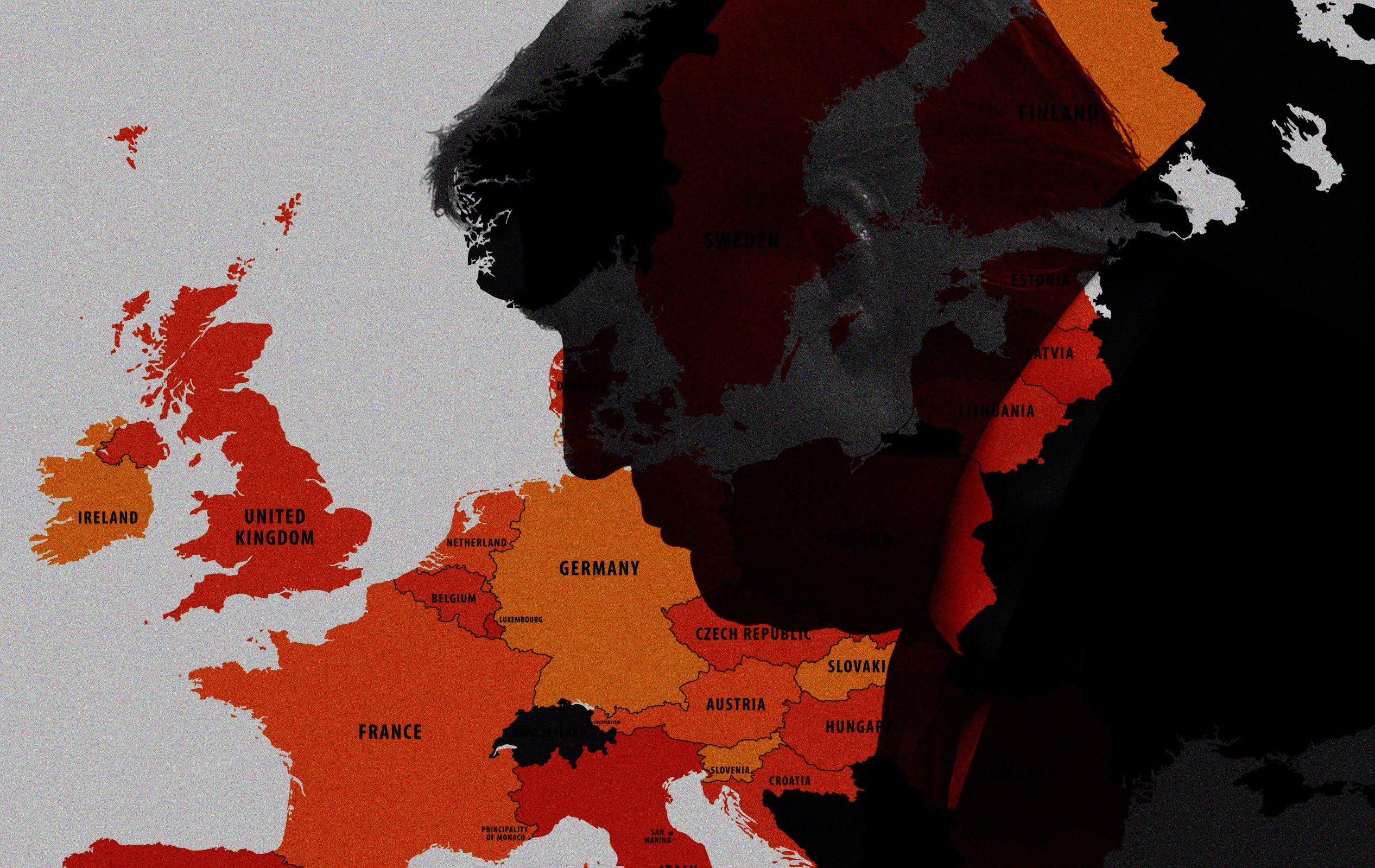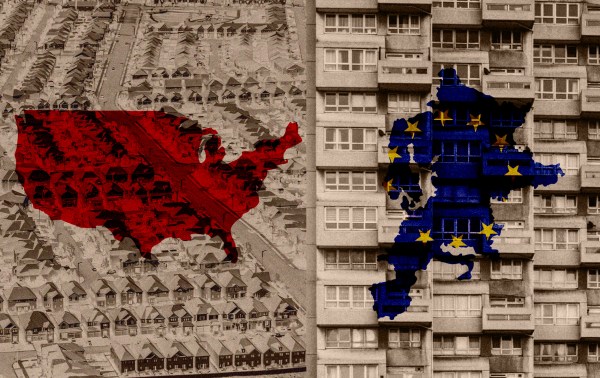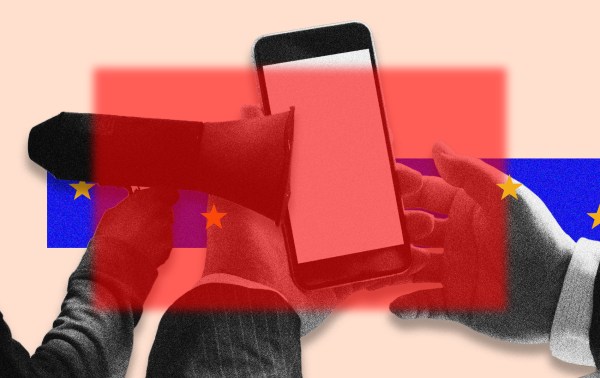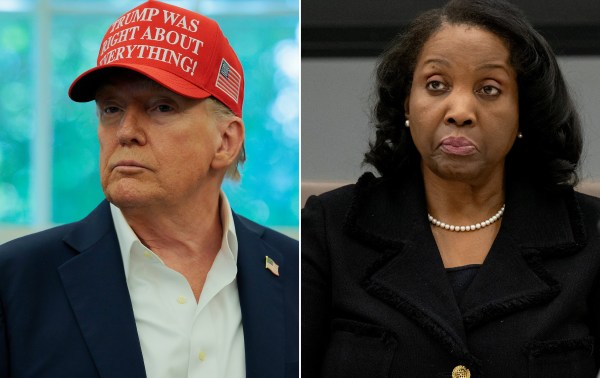Donald Trump’s second term has so far been much more radical than his first. But even among the broad range of extreme measures taken by the administration in areas from higher education to immigration, its apparent hostility to Europe stands out. This seeming animosity once again made the headlines over the last few days when Trump threatened that he would, by August 1, impose 30 percent tariffs on the European Union.
During his first term, Trump had hardly been a friend of Europe. His dislike for moderate leaders like Germany’s Angela Merkel was palpable, his insinuations that America might leave NATO constant. But during his second term, the administration’s hostility to the continent has gotten even more intense. Trump has repeatedly threatened to annex Denmark’s autonomous territory of Greenland. He has berated Ukrainian President Volodymyr Zelensky in an infamous meeting in the Oval Office. And even before the latest tariff threat, Trump had taken an especially tough line on trade with Europe.
Trump’s vice president has been even more hostile. J.D. Vance had a point when he warned Europeans about how blithely countries on the continent now jail their citizens for what they say on social media. But the hostility with which he addressed his audience at the Munich Security Conference, his pointed silence about pressing concerns like the threat posed by Russia, and his explicit embrace of far-right parties like the Alternative for Germany understandably shocked his hosts. Perhaps most remarkable were the private messages Vance sent in a leaked group chat of senior administration officials. What truly shocked European diplomats is not that he did not regard the fact that U.S. strikes against the Houthis would have benefits for America’s longstanding allies as a reason to go ahead with them; it’s that he actively recoiled at striking the Houthis because doing so might happen to benefit Europeans.
The last weeks have brought some cautiously optimistic signs. An offensive of charm and outright flattery by European leaders at the latest NATO summit in The Hague seems to have resulted in a somewhat better working relationship with their American counterpart. And as it is starting to dawn on Trump that Vladimir Putin has never been seriously interested in a peace deal, the president has even become somewhat more supportive of Ukraine.
But despite these green shoots, Trump’s impatience with Europe has been such a persistent feature of his first months in office that, on a recent trip to Europe, virtually everyone I spoke to kept asking me about it. From former heads of state at high-powered gatherings to next-door neighbors in a small Italian village, they all wanted to know what the reason for Trump’s implacable hostility towards Europe could possibly be.
The answer most commonly given on the continent these days is that Trump suffers from what we might call Europhobia. In this explanation, the president simply harbors some irrational hatred of Europe. But simple and seemingly obvious though that explanation may be, the truth turns out to be more complicated. To understand the true nature of Trump’s beef with Europe—something that is important to do if we are to predict how he is likely to act in the remaining three years and six months of his presidency—it is necessary to examine more subtle factors.
There are areas in which all recent American presidents, Democrat or Republican, have grown impatient with Europe. The burdens of America’s relationship with the continent keep increasing as its economy and population grow faster than those of the European Union, a trend that is especially salient to Trump due to his zero-sum worldview. Trump feels personal pique at being looked down upon by European elites in much the same way he resents the old-money socialites who sit on the board of the Metropolitan Museum of Art in New York City. Finally, he harbors a special connection with the continent from which his forefathers hail—one that, paradoxically, makes him all the more angry at the way in which Europe’s elites are (in his opinion) betraying their heritage.
America has long provided the lion’s share of spending and personnel for the defense of the European continent. A long list of U.S. presidents, from Bill Clinton and George W. Bush to Barack Obama and Joe Biden, have exhorted European leaders to step up their investments in their own militaries. For much of the last quarter century, progress has been remarkably slow.
NATO members pledged to spend 2 percent of their GDP on defense at a 2006 NATO summit in Riga, Latvia. For the following 15 years, that promise was, despite repeated American exhortations, honored more in the breach than the observance. It is only since the Russian invasion of Ukraine, in February 2022, that European governments have started to prioritize military spending over competing budgetary demands.
The halting progress towards greater investment in defense spending has long been one of Trump’s main points of contention with Europe. And it is in part because he could credibly threaten that America might stop acting as a guarantor of the continent’s security that European leaders agreed to a historic set of promises at last month’s NATO summit in The Hague. At least on paper, European nations are now committed to raising their combined spending on direct military needs and a broader set of defense-related areas, such as technological innovation, to 5 percent of GDP.
There is also another way in which Trump’s impatience with Europe reflects broader transformations: Economic and demographic trends are making the transatlantic relationship increasingly lopsided. A few decades ago, the European Union had a population that was significantly larger than the United States, and an economy that was about as big. As a landmark report by the Center for Strategic and International Studies pointed out over a decade ago, the GDP of Western Europe was identical to that of the United States in the 1980s. Meanwhile, the population of the EU was, until recently, much larger than that of the United States. Both of these basic facts about the transatlantic alliance are now rapidly changing. By 2050, the report projected, the size of Western Europe’s economy will be less than half that of the United States. Even the demographic gap is steadily shrinking. In 2000, America’s population was two-thirds of the size of Europe’s. Today, it has grown to three-quarters the size. And with birth rates still markedly lower on the continent, America’s population is likely to keep gaining on Europe’s with every passing year.
These trends force America into the role of a “resentful hegemon.” By simple virtue of its economic and demographic might, the United States is becoming an ever-more dominant partner in the transatlantic partnership, forcing the country to make by far the biggest contribution to collective security. Europeans, meanwhile, are increasingly peeved about being relegated to the status of a junior partner—something that rankled leaders like French President Emmanuel Macron even when much more transatlanticist leaders, like Joe Biden, occupied the White House.
None of this is altogether new. American leaders grew impatient with Europe’s lackluster investment in defense long before Trump was elected. Similarly, the structural changes that are turning the United States into a resentful hegemon—and Europe into a sullen client—will persist long after Trump has departed office. But there are nonetheless strong reasons why Trump is especially likely to take umbrage at these factors, ones that are deeply rooted in his psyche and worldview.
America’s role in the world system gives the country both special responsibilities and special privileges. The country takes on a disproportionate part of the burden in providing what economists call “public goods”: actions from which other nations also benefit, such as using its military might to ensure that international shipping lanes remain navigable. (Hence the strikes on the Houthis.) But the United States also gets to shape the rules of the international order in accordance with its strategic objectives and reaps significant economic benefits from the dollar being the international reserve currency. The burdens are real—but most American leaders have historically believed that the benefits ultimately outweigh them.
Trump disagrees. To appreciate the ways in which America’s global leadership benefits the country, you need to be attuned to positive-sum interactions: to frameworks for cooperation in which all parties benefit. But Trump has, from his private life to his business dealings, always seen the world in zero-sum terms: He has long been upfront about the fact that, in his estimation, for one person to win, another has to lose.
That mindset makes Trump deeply suspicious of America’s preeminent role in the international system. Indeed, a lot of the ways in which he has broken with the traditional Democratic and Republican establishments are rooted in his belief that both have let America’s traditional allies play the country for suckers. And since America’s alliance with European countries has traditionally been particularly strong, his concern that America is being taken for a ride is especially formative of his attitude toward Europe. In private, many European leaders still express their shock that Trump treats them with such hostility, even though they are such close allies of America; this misses that, in his own mind, Trump is so tough on Europe precisely because of how close the transatlantic alliance has historically been.
There is also another, more paradoxical, set of reasons why Trump is so singularly obsessed with Europe.
One consistent rule about Trump is that he hates those who hate him, and loves those who love him. Consequently, one reason why Trump hates Europe is, simply, that most Europeans strongly dislike him.
This is reflected in international polls. Trump often turns out to be surprisingly popular in countries such as India, Kenya, and Nigeria, where a majority of respondents profess to have confidence in him. But he is consistently very unpopular in major European countries, such as Spain and Germany, where fewer than 1 in 5 respondents have such a positive view.
A lot of Trump’s anger at the American establishment has, from the beginning, been driven by the fact that, despite all of his riches, New York City’s true elite looked down upon him. Similarly, a lot of his anger at European leaders has, from the beginning, been driven by the fact that, despite all of his power, the true elite of the European Union did not take him seriously. At times, this took the form of implicit verbal rebukes from senior European leaders, as when Donald Tusk, then the president of the European Council, pointedly asked: “With friends like that, who needs enemies?” At other times, it even verged on outright mockery, such as when Macron, Britain’s Boris Johnson, and other leaders were caught on a hot mic making fun of Trump during the 2019 NATO summit in London.
This leaves one final explanation for Trump’s hatred of Europe. In German, we say that “was sich liebt, das neckt sich” (those who love each other, tease each other). In French, it is sometimes said that “la proximité engendre le mépris” (proximity breeds contempt). In English, there is the saying that “you always hurt the ones you love.” All three idioms get close to the true source of the administration’s attitude toward Europe: Trump and Vance are not indifferent to Europe; rather, they feel that their love for the continent has been betrayed.
Both Trump and Vance’s forebears hail from Europe. Both believe that European civilization provided the indispensable historical basis for the American experiment. And both fear that this civilization is now under threat—with European political elites complicit in its destruction. As Trump told an audience in Warsaw in one of his first major addresses on European soil back in the summer of 2017, “The fundamental question of our time is whether the West has the will to survive. Do we have the confidence in our values to defend them at any cost? Do we have enough respect for our citizens to protect our borders? Do we have the desire and the courage to preserve our civilization in the face of those who would subvert and destroy it?”
In the eyes of the White House, European culture is under threat from globalization, from mass migration, and from the social liberalism of its governing elites. The continent’s leaders, Trump and Vance believe, are failing to stand up for their heritage, more interested in their own advancement than in preserving their continent’s threatened culture. And when they are selling out their countries in this way, they aren’t just weakening someplace that is ultimately of little concern to Americans; they are undermining a civilization that Trump and Vance believe to be at the root of their own.
It’s widely believed that the special anger which Trump and his allies reserve for Europe is borne of hostility or indifference. But paradoxically, the truth comes close to being the opposite of that assumption. Trump’s disdain for Europe flows from the kind of obsessive hatred of which only jilted lovers are capable.










Please note that we at The Dispatch hold ourselves, our work, and our commenters to a higher standard than other places on the internet. We welcome comments that foster genuine debate or discussion—including comments critical of us or our work—but responses that include ad hominem attacks on fellow Dispatch members or are intended to stoke fear and anger may be moderated.
With your membership, you only have the ability to comment on The Morning Dispatch articles. Consider upgrading to join the conversation everywhere.